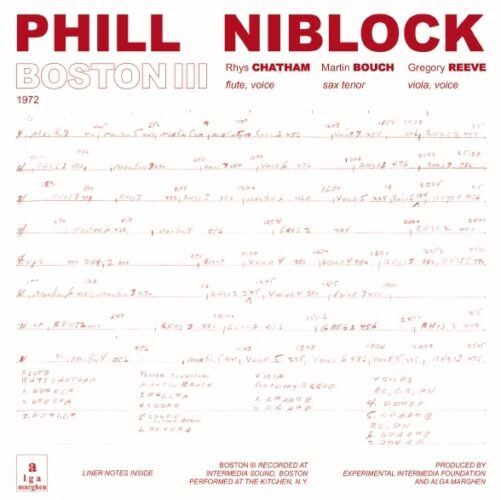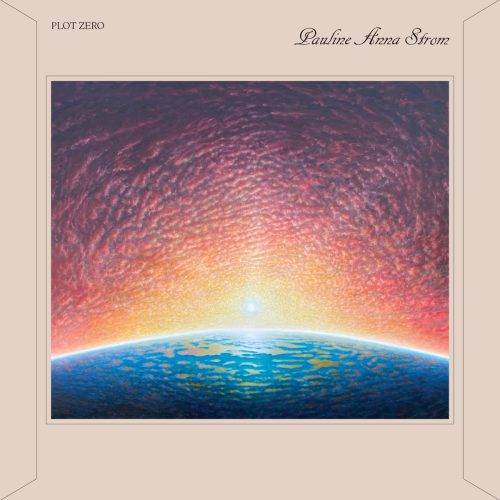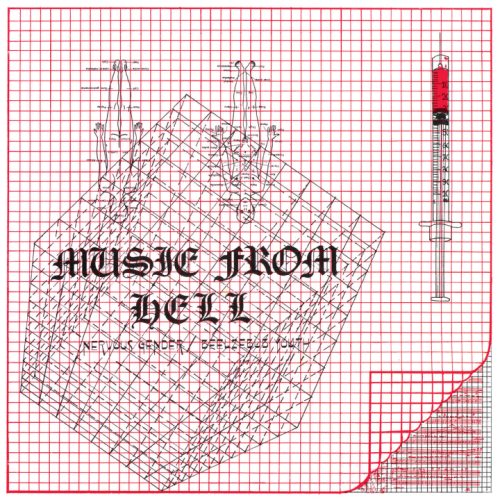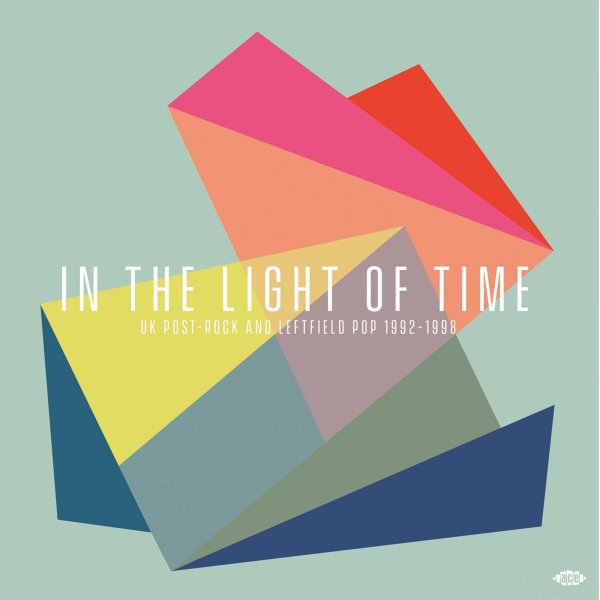Boston III / Tenor / Index
Label: Alga Marghen
Genre: Highlights, Electronic, Experimental
$39.99
Availability: In stock
Audiopile Review: Drone overlord Phill Niblock with guitar noise orchestrator Rhys Chatham on flute and vocals? How did we not know these two legends of New York’s downtown new music scene had worked together in 1972? Heck, we did not even know Phill Niblock had started composing music back then. And one of the pieces collected on this new release is from three years before that! We feel like idiots. But to be fair, these three recordings have never been released before. And, even now, they’re only out in an edition of 450 LPs. This truly feels like a piece of secret history. All the compositions are excellent and provide real insight into how Niblock discovered the mind-bending power of combining just the right drones. ‘Boston III’, the one featuring Chatham, is clearly the centrepiece here. A truly infernal mass of sound, it recalls Krzysztof Penderecki’s ‘Threnody for the Victims of Hiroshima’ (which you may know from OST to Kubrick’s ‘The Shining’). Beyond their obvious historical significance, these are deeply affecting compositions that will stay with you long after the record ends.
Boston/Tenor/Index, presents for the first time some of the earliest works by the American composer Phill Niblock, including three never before released pieces: “Index” (1969), “Tenor,” and “Boston III” (both from 1972). Until now, it’s been impossible to encounter Niblock’s compositions from earlier than the 1960s, a reality thankfully rectified by the long overdue publication of this Boston/Tenor/Index LP on Alga Marghen. “Tenor” (1972) represents the first evolution of Niblock’s musical thought towards the aesthetics of microtones, overtones, and drones which the composer would develop in following decades. The piece was recorded by the photographer Martin Bough on tenor saxophone and gradually dubbed back and forth by the composer in his New York studio. “Boston III” (1972) was recorded at the Intermedia Sound studio in Boston with Rhys Chatham (flute, voice), Martin Bough (tenor saxophone), and Gregory Reeve (viola, voice); the composer himself also contributed with his voice. The LP also includes “Index” (1969), an improvised sound performance by the composer himself. Guitar (both its body and strings), fingers and fingering fuse in a vehement action around which barely listenable sounds and resonances vibrate. Considering the extended pulsation as an organic blend of impulse, rhythm, drive, strength, vitality and passion, the end of this sole solo in Niblock’s complete oeuvre is not defined by the fixed duration of the piece but as the consequence of the tiredness of the performer. The music changes according to the loudness of playback. The interaction of the upper harmonics changes especially, with much richer overtone patterns being produced at louder levels. Edition of 450 copies, including an insert with liner notes and photo.





